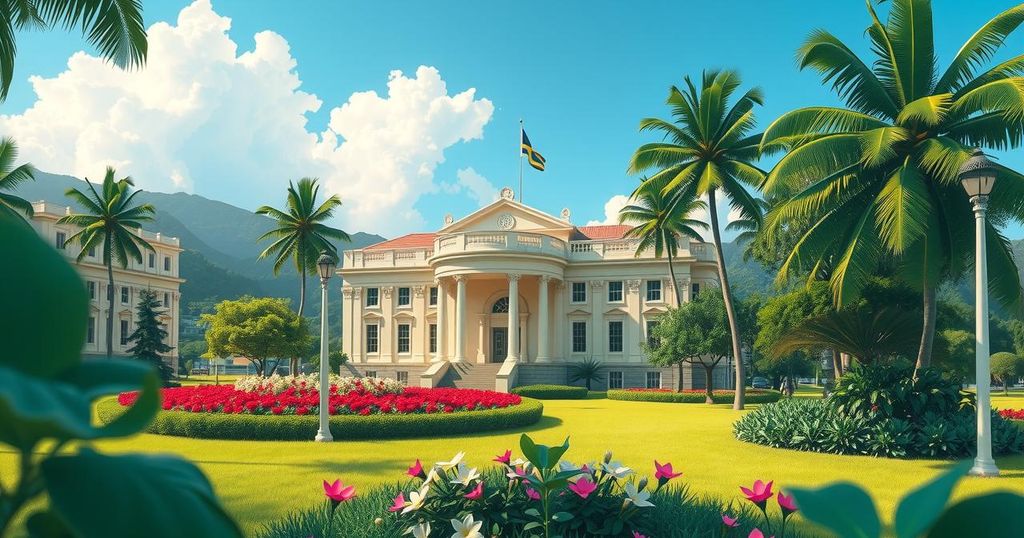Stuart Young’s Historic Ascension as Prime Minister and Call for Elections in Trinidad and Tobago

Following his swearing-in as Prime Minister, Stuart Young has called for new elections in Trinidad and Tobago, set for April 28th. This call comes after the resignation of former Prime Minister Keith Rowley, with the UNC gearing up to contest despite claims against the legitimacy of Young’s appointment. Young retains the energy portfolio and has reshuffled the cabinet to tackle ongoing national concerns.
In a significant political shift, Stuart Young was sworn in as the Prime Minister of Trinidad and Tobago and promptly called for new elections. On Tuesday, his office announced that he had advised President Christine Kangaloo to dissolve Parliament, with elections scheduled for April 28th and nomination day on April 4th. This decisive move marks Young’s intent to establish his mandate as Prime Minister.
Young’s ascension follows the resignation of longtime Prime Minister Keith Rowley, who led the nation for nearly ten years and appointed Young, previously the Minister of Energy, as his successor. The transition sparked controversy, particularly given the opposition parties’ claims that it was executed illegally and unconstitutionally. Under the leadership of former Prime Minister Kamla Persad-Bissessar, the United National Congress (UNC) is gearing up for the upcoming elections.
Despite allegations of illegitimacy regarding his appointment, Young is proceeding with calling elections at a time when the country faces pressing concerns over external policies and internal dynamics. The UNC is reportedly not in a strong position to challenge Young, raising questions about the election’s competitiveness. In a response to the criticism, Persad-Bissessar has expressed her party’s readiness for the electoral contest.
Former Prime Minister Rowley, during his farewell rally, criticized the UNC while encouraging disillusioned members to join his party. He highlighted the importance of national unity in light of contemporary challenges, including increased violence and the ongoing repercussions of the COVID-19 pandemic. His administration also dealt with migrant issues stemming from Venezuela, prompting him to stress the need to reevaluate legal ties with the United Kingdom.
Young, upon assuming office, retained his position as Minister of Energy and introduced significant changes to the cabinet, including appointing a new Attorney General and Minister of Legal Affairs, Camille Robinson-Regis. This new leadership aims to address pressing socio-political issues while navigating the economic landscape affected by the prior government’s policies.
In conclusion, Stuart Young’s assumption of the Prime Minister role marks a pivotal moment in Trinidad and Tobago’s political landscape, prompting immediate calls for elections. This situation is compounded by historical tensions with the UNC and Rowley’s legacy. As the country prepares for elections, Young’s leadership will be critical in navigating national concerns, ensuring stability, and addressing emerging challenges.
Original Source: www.miamiherald.com







